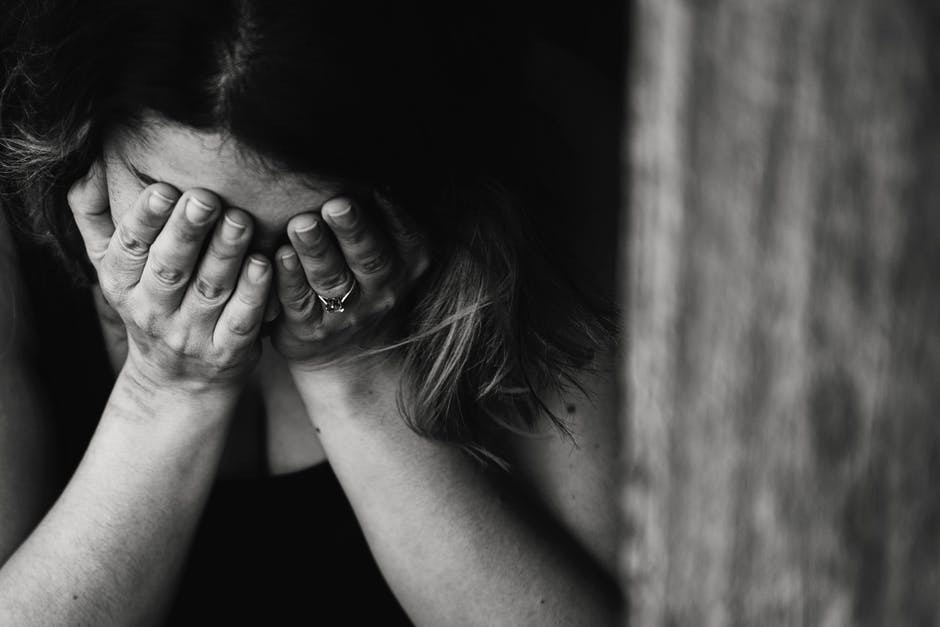There’s a new wave of culture hitting the marketplace. Kava bars are becoming increasingly popular among young people and others. Some people consider it an alternative to alcohol use or drug abuse. In fact, most believe it to be an herbal supplement rather than a drug or substance of abuse. In most cases in the US, kava bars embrace a coffee-house-like aesthetic.
Often, people even go on lunch breaks for the kava to help them focus, and the social ease of the environment is also a factor. Other times, people choose kava bars as an alternative to alcohol. All in all, this is a new way for some people to cope with their substance use disorder.
But what exactly is kava, and is it a healthy alternative, or just another slippery slope? Is kava addictive? If so, what can people do to treat kava addiction?
What Is Kava?
Jump to Section
 Kava is a plant that is native to the South Pacific islands. The kava plant has been used for centuries by the people of these islands for its medicinal properties. The Kava root is the part of the plant that is used to make kava tea. Kava tea has a number of benefits, which include the following:
Kava is a plant that is native to the South Pacific islands. The kava plant has been used for centuries by the people of these islands for its medicinal properties. The Kava root is the part of the plant that is used to make kava tea. Kava tea has a number of benefits, which include the following:
- Relief from anxiety
- Stress relief
- Insomnia
Kava tea is also said to be helpful in treating headaches, muscle pain, and other types of pain and can be found in many health food stores and online. This tea is usually made with kava powder, which can be purchased from most health food stores. It can also be made with kava extract, which is available in other stores or marketplaces.
What Kind of Effect Does Kava Have on People?
The psychoactive effects of kava are what make it such a desirable substance. There are compounds found in kava plants called kavalactones. When the kava plant ages, the concentration of the psychoactive compounds increases. Like other herbal medicines, there are different strains of kava (two to be exact). The strains are referred to as ‘noble’ or ‘non-noble’.
These strains have their differences; noble strains don’t mature until about five or so years. They also have more kavalactones than the other, non-noble strain. While the non-noble strain doesn’t have as many kavalactones, they are easier to produce; they’re also quicker and cheaper to harvest. However, the non-noble strain produces some chemical compounds that could be potentially harmful to a person.
Is Kava a Safe Alternative to Alcohol?
 Kava is a safe and effective alternative to alcohol, with none of the negative side effects. Kava has been shown to reduce anxiety, improve sleep quality, and increase feelings of well-being. Unlike alcohol, kava is not addictive and does not lead to liver damage or other health problems.
Kava is a safe and effective alternative to alcohol, with none of the negative side effects. Kava has been shown to reduce anxiety, improve sleep quality, and increase feelings of well-being. Unlike alcohol, kava is not addictive and does not lead to liver damage or other health problems.
Those who enjoy or consume kava regularly consider it a safe alternative to drinking. Not only that, but they also consider a way to relax as an alternative to marijuana, benzos, or Xanax. When a person consumes kava, a slight buzz comes over them. This buzz could be described as similar to the one that is experienced after having alcohol. However, kava does not leave a person cognitively impaired.
In addition to all of this, some people consume kava to feel more focused and relaxed. Interestingly enough, researchers are considering whether or not kava can be an alternative for anxiety treatment. Kava works by increasing the levels of GABA in a person’s brain. This is the same way benzos work, but on a non-addictive scale without the symptoms of withdrawal.
What Is Kava Used for?
The kava drink is made by grinding the roots of the kava plant and mixing them with water. The resulting liquid is then consumed. Kava has sedative and relaxant effects, and it is commonly used to treat anxiety, stress, and insomnia. Kava is also used as a natural remedy for headaches, muscle pain, and menstrual cramps.
In recent years, kava has gained popularity as a dietary supplement due to its potential health benefits. Some studies have shown that kava can help to reduce anxiety and improve sleep quality. Additionally, kava has been shown to have anti-inflammatory and analgesic effects, making it a potentially effective treatment for conditions like arthritis and chronic pain.
If you’re interested in trying kava for its medicinal purposes, it’s important to speak with a healthcare professional first. Kava can interact with certain medications, and it may not be safe for everyone. When consumed in moderation, kava is generally considered to be safe. However, kava can cause liver damage when taken in large quantities or over an extended period of time. Therefore, it’s important to consult with a healthcare professional before taking kava supplements or drinks.
Is Kava Addictive?
 There is a lot of debate surrounding kava and its potential for addiction. Some people believe that kava is addictive because it can cause cravings and withdrawal symptoms when someone stops taking it. Others believe that kava is not addictive because it does not produce the same high as other drugs like alcohol or opioids.
There is a lot of debate surrounding kava and its potential for addiction. Some people believe that kava is addictive because it can cause cravings and withdrawal symptoms when someone stops taking it. Others believe that kava is not addictive because it does not produce the same high as other drugs like alcohol or opioids.
The truth is, we don’t really know if kava is addictive or not. There is no clear scientific evidence to support either claim. However, some experts believe that kava may be more likely to cause addiction in people who are predisposed to substance abuse disorders. If you have a history of addiction, you should use caution if you decide to take kava.
If you do decide to take kava, be sure to start with a low dose and increase gradually. This will help you avoid any negative side effects and minimize the risk of addiction. Remember, kava is a powerful substance and should be treated with respect. If you think you may be developing an addiction to kava, please seek help from a qualified medical professional.
Treatment Options for Addiction Recovery
There are great benefits to kava for the body and mind, but subbing it out for another substance can only get a person so far. If their substance use disorder is severe, they may need to consider seeking professional care. Some of these options include the following:
- Inpatient residential treatment
- Outpatient treatment
- Medically assisted detox
- Therapy
Inpatient/Residential Treatment
Inpatient/residential treatment is a type of mental health treatment that provides around-the-clock care in a hospital-like setting. It is usually used for people who need more intensive treatment than can be provided on an outpatient basis, or for people who are a danger to themselves or others.
During inpatient treatment, you will work with a team of mental health professionals who will create a treatment plan specifically for you. Treatment typically includes individual, group, and family therapy, as well as medication management. The goal of inpatient treatment is to help you stabilize your symptoms and develop healthy coping mechanisms so that you can eventually return to your normal daily routine.
If you are considering inpatient treatment, it is important to find a facility that is accredited and offers a variety of treatment options. Inpatient treatment is not a one-size-fits-all approach, so it is important to find a facility that can meet your specific needs.
Outpatient Treatment
Outpatient treatment for addiction recovery can be an important step in helping you or a loved one recover from addiction. It can provide the structure and support necessary to maintain sobriety while allowing you to live at home and continue working or attending school.
Outpatient treatment typically consists of regular meetings with a counselor or therapist, group therapy, and participation in 12-step or other recovery programs. It is important to find an outpatient treatment program that is tailored to your individual needs and that offers the level of support you need to recover. With the right outpatient treatment program, you can overcome addiction and stay on a path of sobriety and stability.
Medically Assisted Detox
Medically assisted detoxification, also known as medical detox, is the process of ridding the body of harmful substances with the help of medication and medical supervision. This type of detox can be used to treat addiction to drugs or alcohol.
Medical detox can be an important first step in addiction treatment. It can help to reduce withdrawal symptoms and make the detox process more comfortable. It can also help to prepare the person for further treatment, such as behavioral therapy or 12-step programs.
Medically assisted detoxification usually takes place in a hospital or other inpatient setting. During detox, the person will be monitored closely by medical staff. They will provide medication to help lessen withdrawal symptoms and make the person more comfortable.
Withdrawal symptoms can vary depending on the substance being abused. They can range from mild to severe and can even be life-threatening. Medically assisted detox can help to reduce the risk of serious complications during withdrawal.
After the person has detoxed from the substance, they will need to continue with treatment for their addiction. This may include behavioral therapy, 12-step programs, or other types of treatment. Medically assisted detox is only the first step in recovery from addiction.
Therapy Options for Addiction Treatment
There are many different types of therapy that can be effective in treating addiction. Some common options include cognitive behavioral therapy, rational emotive behavior therapy, group therapy, and twelve-step programs.
Cognitive behavioral therapy is a type of therapy that focuses on helping the individual to identify and change negative thought patterns and behaviors that contribute to the addiction. Rational emotive behavior therapy is a type of therapy that focuses on helping the individual to identify and change irrational beliefs that contribute to the addiction.
Group therapy is a type of therapy that involves meeting with a group of people who are also struggling with addiction. This can be a powerful experience as it allows individuals to share their experiences and learn from each other.
Addiction Isn’t Easy; Free By The Sea Can Help
If you or a loved one are struggling with a substance use disorder and you need help, Free by the Sea is here for you; you can contact us today.

Dr. Richard Crabbe joined our team in 2019 as our psychiatrist and medical director. He attended the University of Ghana Medical School where he became a Medical Doctor in 1977. From 1978 through 1984, he was a medical officer in the Ghana Navy and provided a variety of services from general medicine to surgeries. He received his Certificate in General Psychology from the American Board of Psychology and Neurology in 2002.

 September 19th, 2022
September 19th, 2022










